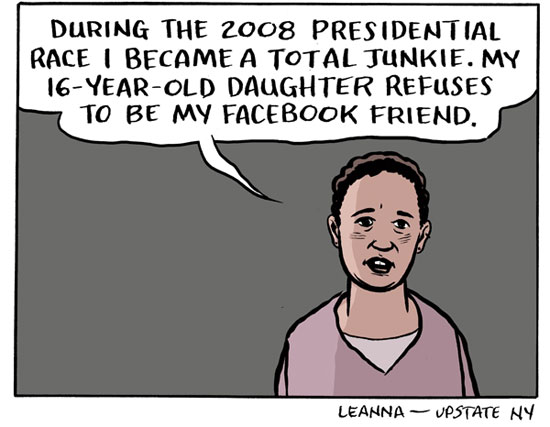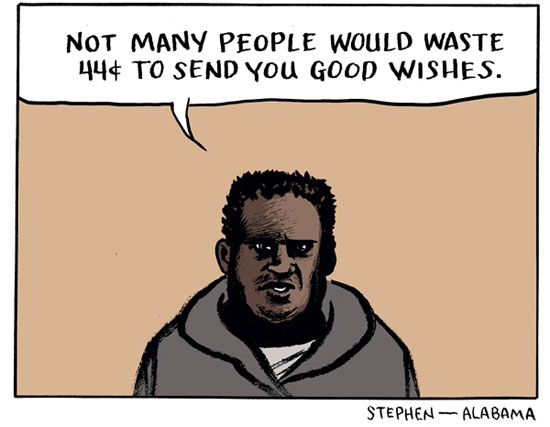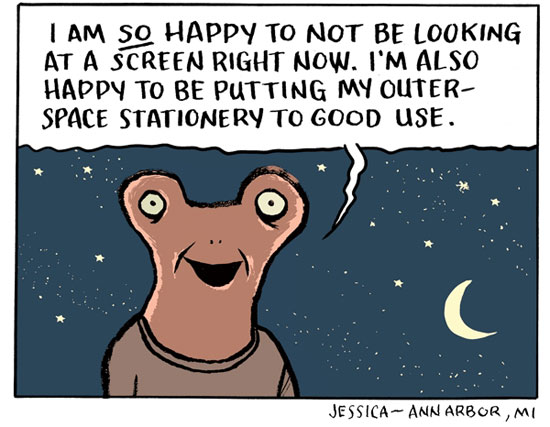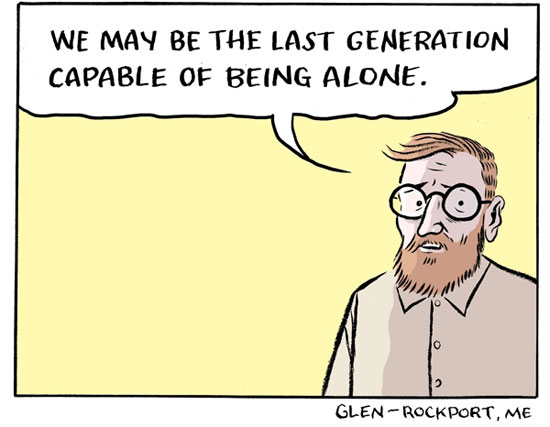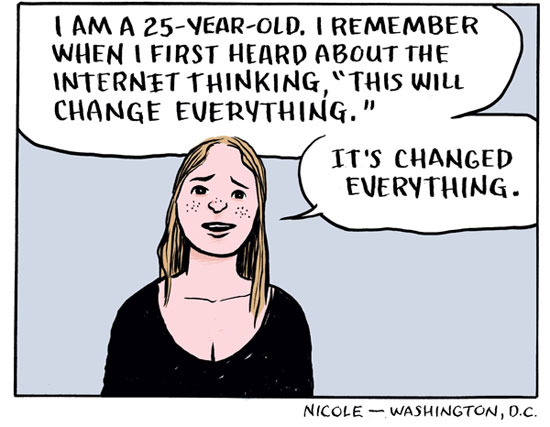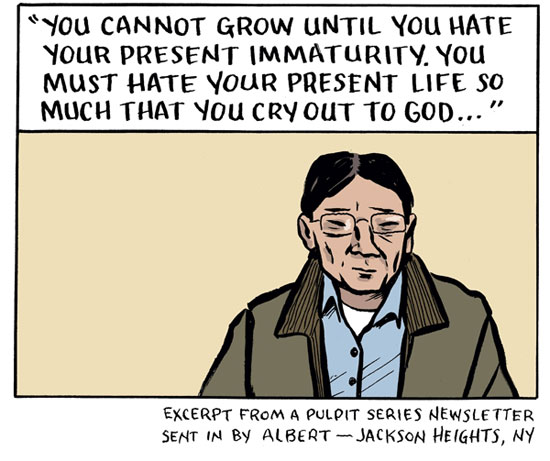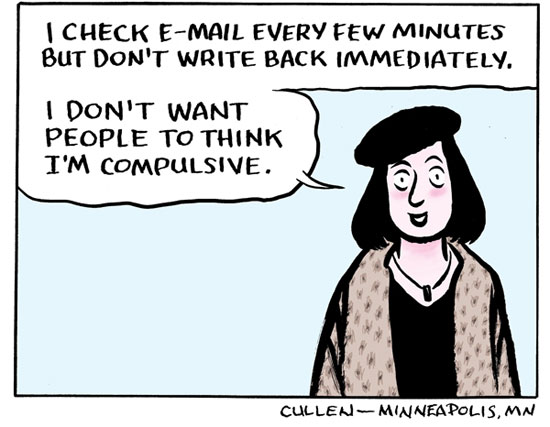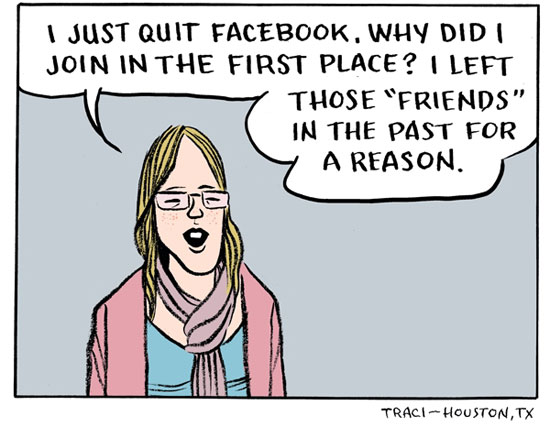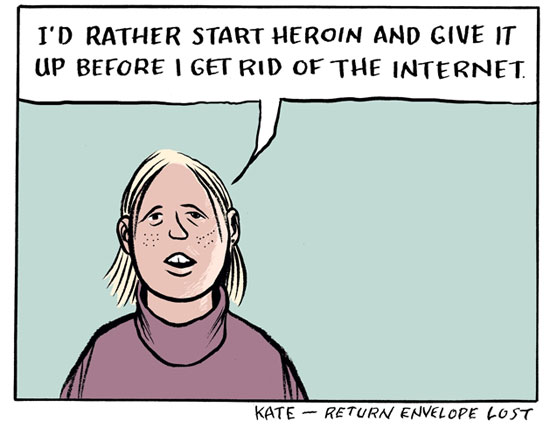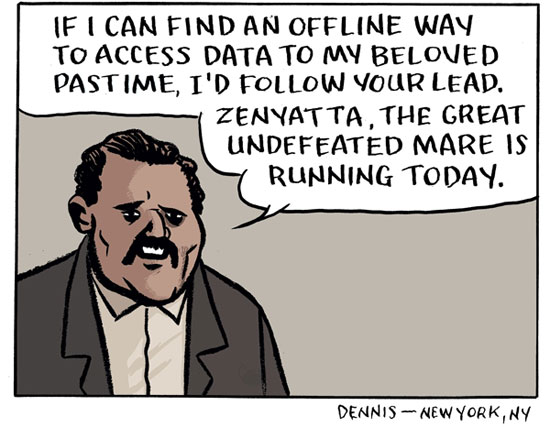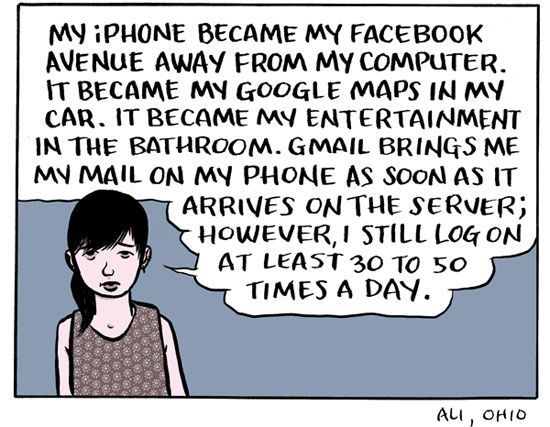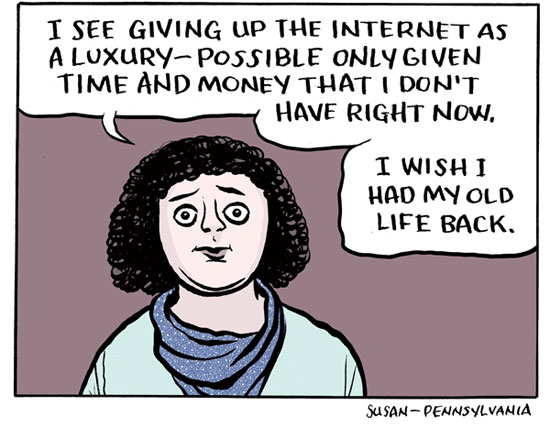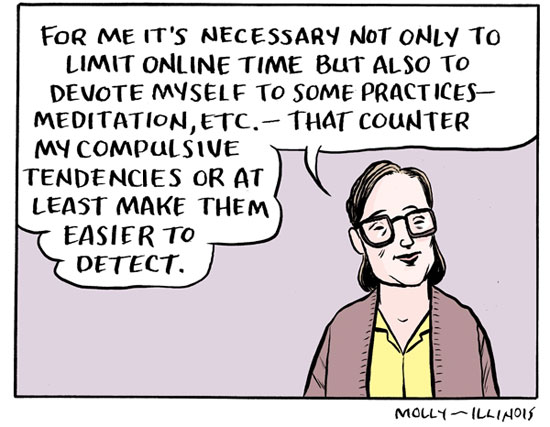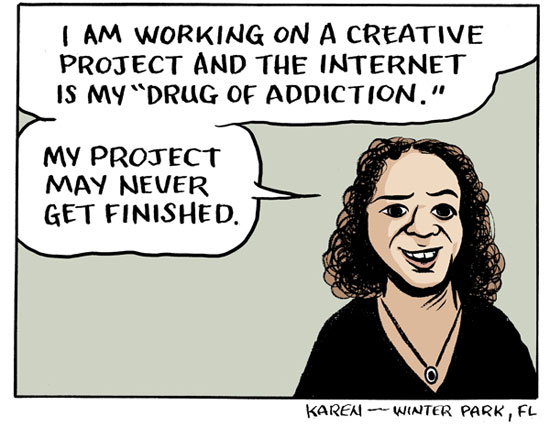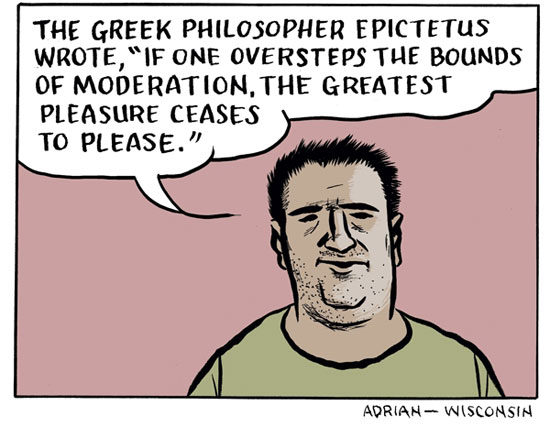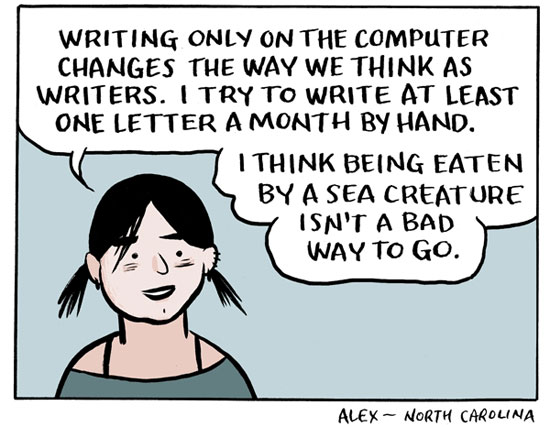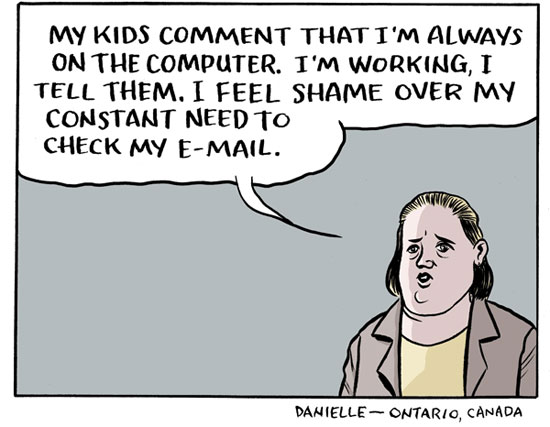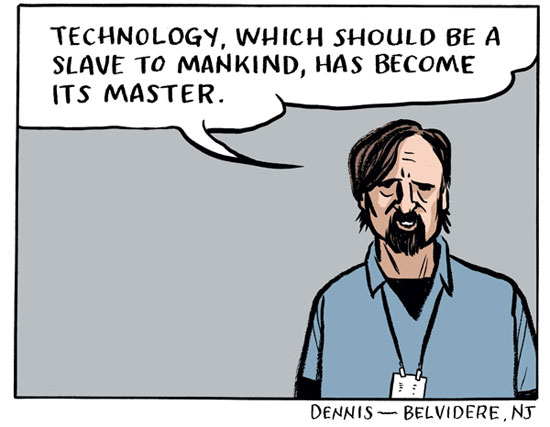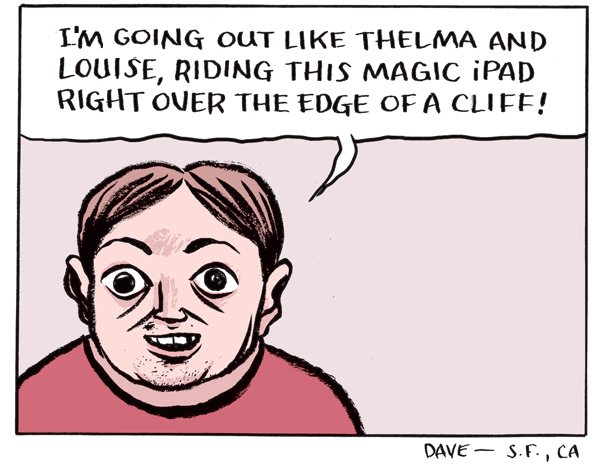Life Without the Web
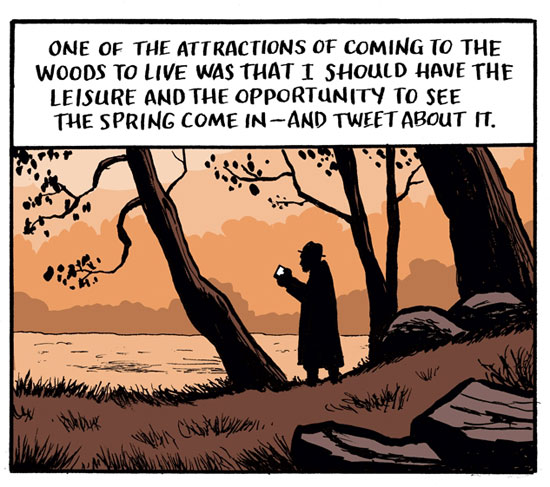
I have been offline for almost four weeks now. I imagined by this time I would have all kinds of dramatic stories about resentful co-workers, domestic tension, and feelings of isolation, but so far the biggest surprise has been how uneventful it is. The benefits have outweighed the hassles.
Though there are hassles. Hassle example No. 1: For my last column, I drew a picture of a Transformer. If I'd still been online, I'd have Googled "Transformer," and within seconds, I'd have had hundreds of robots to use as a reference. Instead, I had to track down an image. I ducked my head into a classroom full of freshman, figuring a CCS student would have a Transformer comic. No dice, but one student suggested going to the school's media room where there was a Transformers DVD. Couldn't find the DVD. I thought about driving 15 minutes to the nearby Wal-Mart for a Transformer coloring book. My cell phone rang, and it was Jen, a CCS senior and librarian. She responded to my complaints by offering to lend me her stack of Transformer comics.
Now when I'm deciding what I will draw, I have to factor in how difficult it will be to find a reference. I considered making an analogy to Ponce de León—going offline is akin to searching for the Fountain of Youth!—but I didn't want to schlep to the library to look up period costumes. (I have a surprisingly limited visual memory for a cartoonist.) So instead, I'll go with Thoreau—I can more easily fake my way through this drawing—and make the point that, in 2010, all it takes to "live a primitive and frontier life, though in the midst of an outward civilization" is disabling your modem, far less work than living alone in a cabin for two years. That's progress, isn't it?
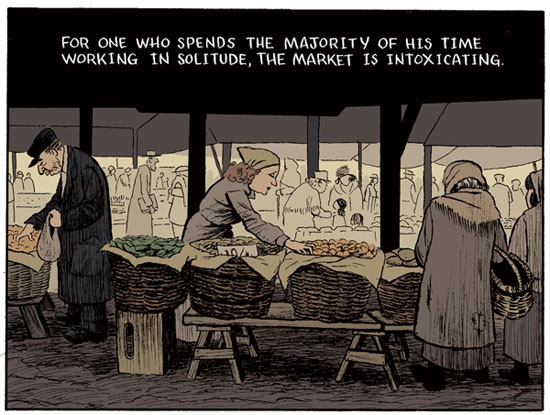
At the end of March, Market Day was released. It's the first graphic novel that I've written and drawn myself since 2001, so you can imagine how excited I was. As the release date grew closer, however, I became increasingly anxious. A few years back, Donald Saaf, a fantastic children's book illustrator, gave a talk at the Center for Cartoon Studies and said something to the effect that magazines aren't dead, they're just called books now. This comment has haunted me ever since. Book publishing now moves at such a dizzying pace that if a book doesn't make an initial splash, it will likely be on the remainder table in a fraction of the time it took to create it. Publishing houses barely have time to edit all the books they commission, let alone promote each one. There is tremendous pressure on the author to spread the word about their own work through Facebook, Twitter, message boards, by any online means necessary. When a work is new, it has a better chance to grab some attention.
I knew that if I went down this road, the joy that should accompany the release of Market Day would be seriously diminished. I start a book as a poet-warrior armed with the noblest intentions, but by the end of the publishing process, I feel like a door-to-door salesman. I understand this is part of the process and that I should quit whining since almost every author has to do it. I also realize that I am not completely checked out of this process—I'm taking advantage of the Web by calling attention to my book in this column. That might strike some readers as opportunistic. To this I respond, yes, it is.
That said, I made a very deliberate decision to go offline following the release of my book. If I were online right now, I'd be glued to my laptop reading reviews, revisiting interviews via podcasts, and tracking my Amazon ranking. For about a month, such behavior seems excusable—after working for years on a book, it's only natural that I'd want to see how it was received—but after that, it becomes an obsession. The pride of accomplishment gives way to vanity. I went offline to avoid this.
Last weekend, I was in Manhattan attending the MoCCA Festival, an annual event celebrating comics and cartooning. I am never more uncomfortably self-conscious than when I am at comic conventions, but this year I was the most relaxed I'd ever been at one of these things, and I'm pretty sure it was because I was offline. Not yet satiated by constantly tracking my book's life on the Web, I really enjoyed my fleeting moment in the spotlight. In describing this feeling to my friend Kriota, she said it was like how consuming porn all day would prevent you from having healthy sex that evening. I promised her I wouldn't use this point as the basis for one of this column's illustrations.
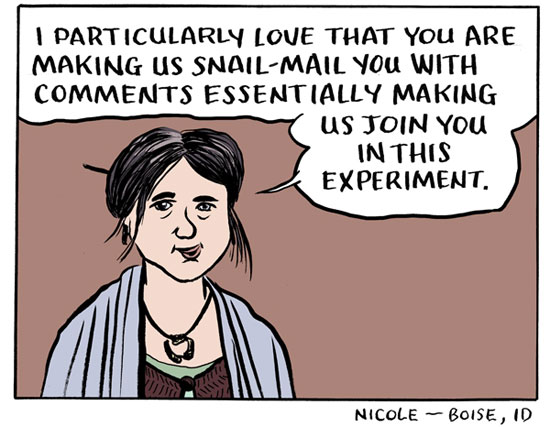
In the first week after my first column ran, I received more than 50 letters from readers describing their own struggles with the Internet. More than three-quarters of them were handwritten. One of the things I love about comics is that, unlike a book set in type, the reader experiences the artist's actual hand. It feels very personal. Many readers expressed what a revelation it was just sitting down and writing a real letter. If I had read these same letters online, they wouldn't have been as moving.
Every single letter was supportive. I've been told that this isn't the case in the column's online comments section. Are sympathetic people more motivated to write? Or is it just that if someone doesn't care for the column, why should he waste more time writing to me about it? Either way, my exposure to negativity, both in terms of feedback on Market Day and this column, is greatly reduced by being offline. If and when I eventually go back to read all the responses to both, I think enough time will have passed and I'll have a healthier distance from my work—it will be easier to either shrug it off or take the criticism constructively. There is a lot to be said for a slower feedback loop.
Below are some excerpts from your letters drawn into comic panels. Since I don't know what anyone looks like, I winged it. Thanks everyone for writing. I encourage more letters—even critical ones.
The Center for Cartoon Studies
Attn: James Sturm
P.O. Box 125
White River Junction, VT 05001
